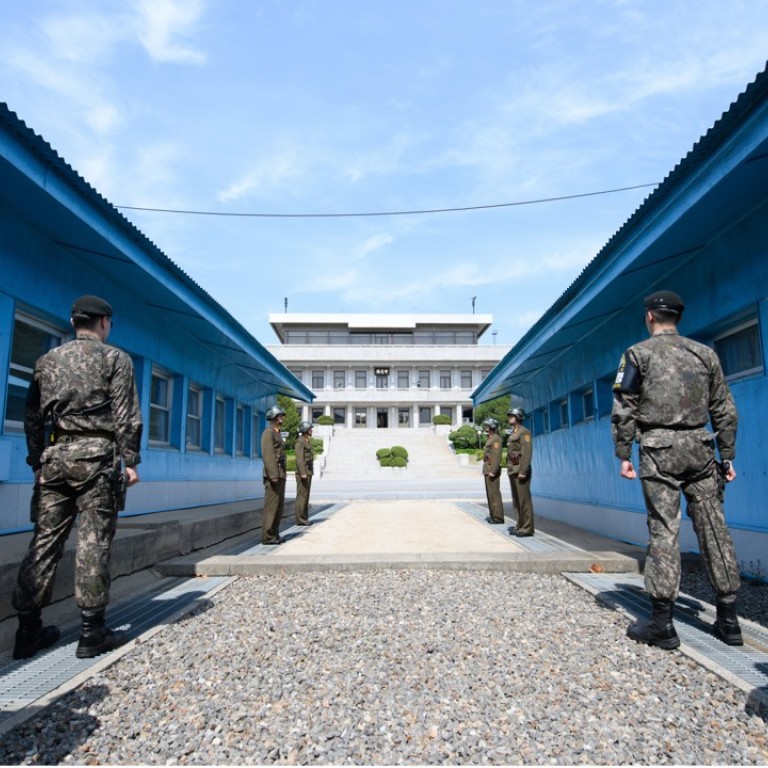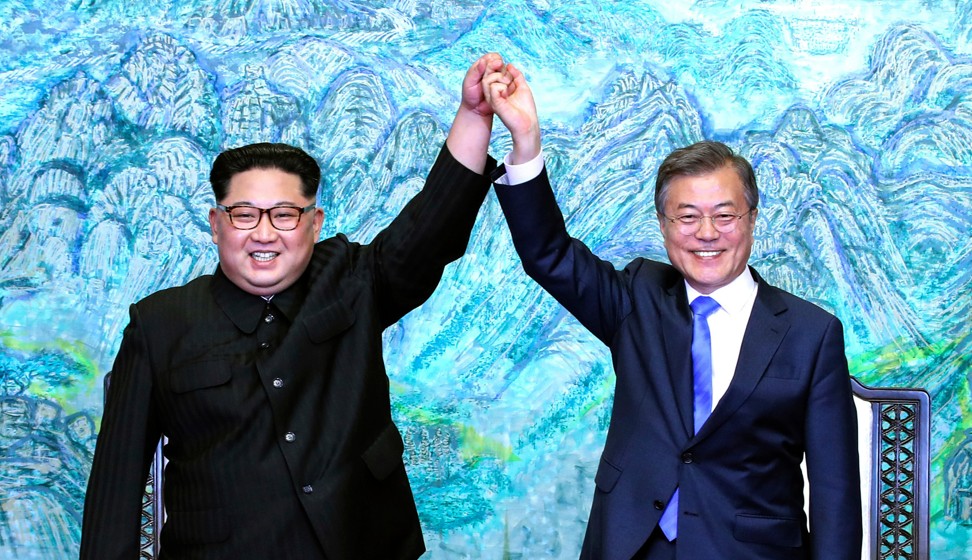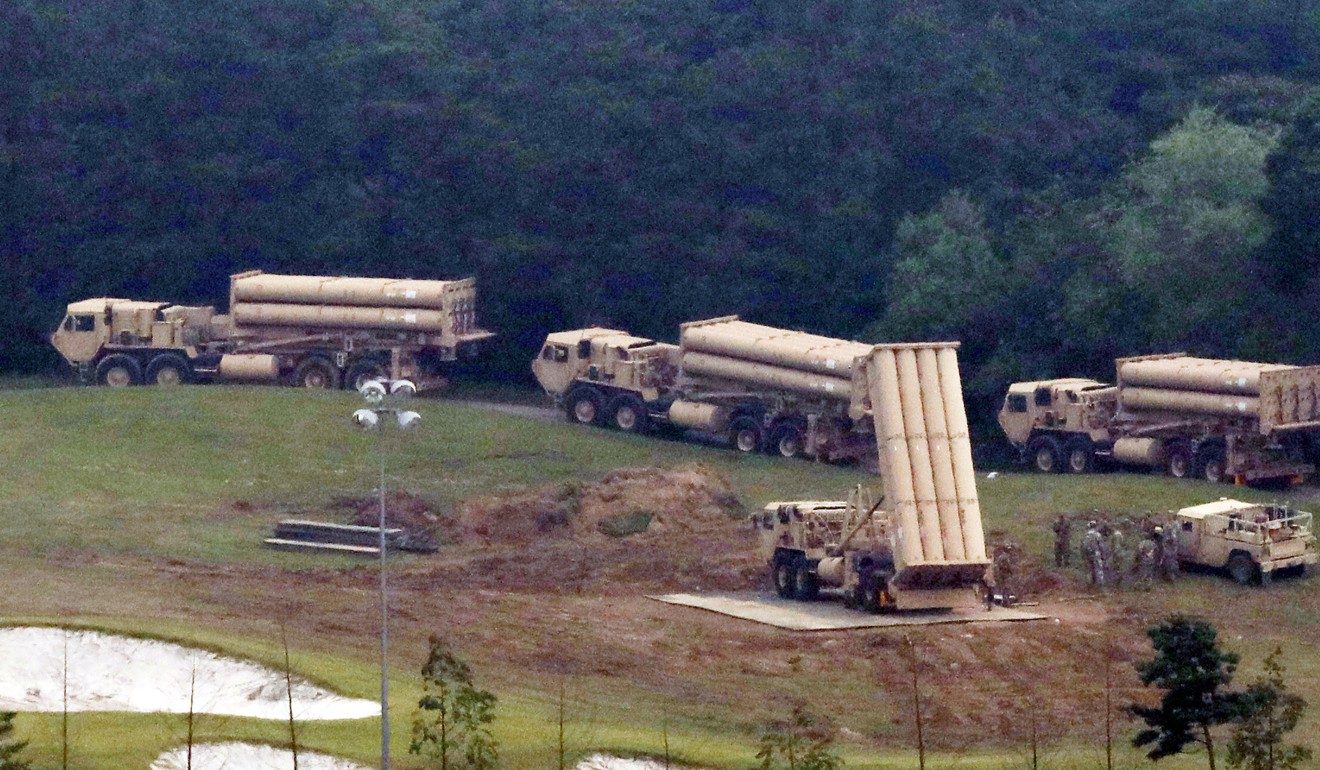
China may seek to end US military presence in Korean peninsula after South opens door to greater role for Beijing in peace talks
South Korean shift to allow China a greater role in peace talks could give Beijing a better chance of securing its own interests by weakening US alliances
China is looking to increase its involvement in talks to bring about a formal end to the Korean war and may seek greater concessions from the United States after a shift in the South’s policy opened the door for a greater role for Beijing.
But the process will be complicated as Beijing may push for an end to Washington’s military deployment in the Korean peninsula, weakening its alliances in the region, according to diplomatic observers.
On the sideline of an Association of Southeast Asian Nations (Asean) summit in Singapore, Chinese Foreign Minister Wang Yi said a declaration to end the war could be achieved after negotiations with all involved parties, adding that this would reflect the common wish of the people in the peninsula.
He also said North Korea should stick to the “correct path” of denuclearisation, and the US should consider Pyongyang’s interests.
North Korea’s top diplomat accuses US of ‘attitude to retreat’ from peace process
Senior leaders from China and North Korea have met frequently in recent months, with North Korean leader Kim Jong-un visiting China three times and officials discussing greater economic cooperation.
China’s role in the Korean peninsula appeared uncertain after the leaders of the two Koreas held a historic summit in April, when they pledged to work together to officially bring the war to an end.
While the fighting was halted by an armistice in 1953, without a formal declaration the two sides are still technically still at war.

After the meeting with South Korean President Moon Jae-in, Kim held an unprecedented summit with US President Donald Trump in June in Singapore.
Officials in South Korea said Seoul had intended to hold talks between the two Koreas and the US, and only involve China at a later stage.
But a diplomatic source in South Korea said Seoul had recently shifted its stance to acknowledge China’s participation and was discussing ways to incorporate Beijing into the process from the start.
Yang Jiechi, the Politburo member responsible for diplomacy, made an unofficial visit to Seoul in mid-July, having talks with South Korea national security adviser Chung Eui-yong.
“Seoul now, although unofficially, assumes Beijing’s participation in the process. It’s a big change. Seoul initially preferred to declare an official end to the war with Washington and Pyongyang, then later involve Beijing in the announcement of a peace treaty,” the source said, adding that the North may have asked Seoul to incorporate China during the process.
“Beijing is very likely to be part of the declaration.”
UN preparing to unblock humanitarian aid to North Korea even as US calls for ‘maximum pressure’ to be maintained
For Beijing, participation in the process from the beginning is crucial to maximise its national interests and counter US influence in the region.
“The Chinese national interest is to break apart the US security alliance,” said Enze Han, an associate professor of politics at the University of Hong Kong. “If South Korea can achieve peaceful relations with the North, what is the justification for US forces on the Korean peninsula?”

Observers also noted that China might also seek the removal of the US-led Terminal High Altitude Area Defence (THAAD) system from South Korea through the negotiation.
“The declaration will make the deployment of THAAD obsolete,” said Hu Weixing, a professor of politics at the University of Hong Kong.
But such an approach risks a backlash from Washington.
The Pentagon said seen previously that it would go ahead with improvements to THAAD, while US Secretary of State Mike Pompeo, speaking at the Asean meeting, said sanctions against North Korea were still necessary.
Trump has repeatedly complained that China has influenced North Korea to drag its heels over disarmament, an allegation Beijing denies.
Six ways for North and South Korea to keep up the momentum for peace
Hong Hyun-ik, a senior researcher at the Sejong Institute, said the US aim was to pull North Korea away from China’s influence through bilateral dialogues.
“Leaving THAAD in the South would minimise the cost to Washington but maintain its influence over the region,” Hong said.
Lee Seok-hyun, a South Korean lawmaker with the ruling Democratic Party of Korea, said China was a major regional player and should play a role in the declaration of peace.
“As the US backs up South Korea, China is also serving the role of North Korea’s security guarantor … from a realistic perspective, China should be incorporated in the declaration.
“After all, China is a legal entity of the Korean armistice in 1953.”

